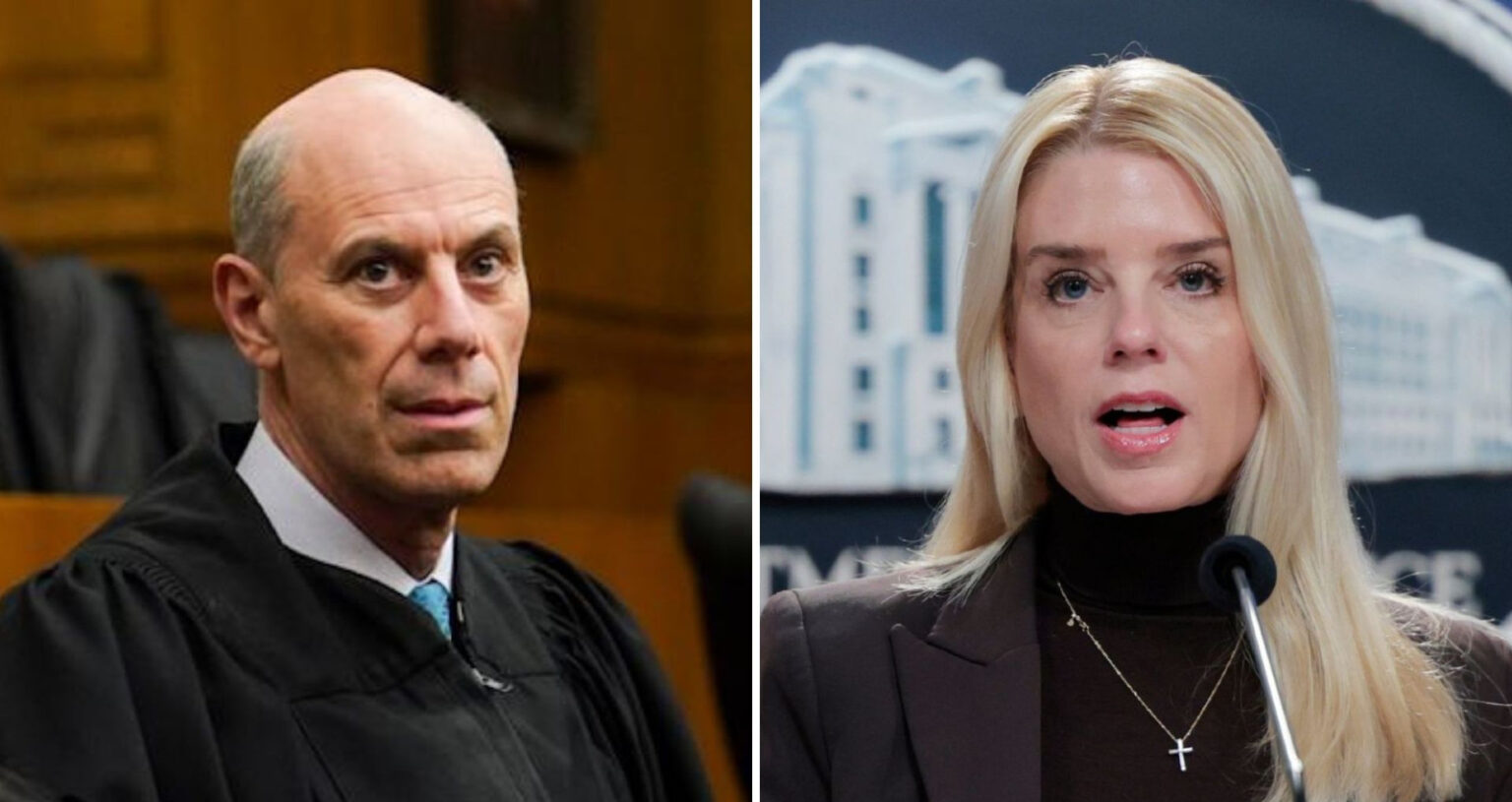Attorney General Pam Bondi has criticized U.S. District Judge James Boasberg, claiming that he “cannot be objective” in ruling on the controversial Signal group chat case involving top Trump administration officials. Bondi further stated that “many judges need to be removed”, arguing that judicial bias is obstructing President Donald Trump’s administration.
Judge Boasberg was assigned to oversee the Signal lawsuit, which revolves around a classified discussion on a military strike against Houthi rebels in Yemen. The chat included key figures such as Defense Secretary Pete Hegseth and Vice President Vance. The exchange was inadvertently leaked to Jeffrey Goldberg, editor-in-chief of The Atlantic, resulting in its public disclosure.
Bondi called Boasberg’s appointment to this case a “wild coincidence against Donald Trump and our administration.” She linked this to previous rulings by the judge that went against Trump’s policies, particularly in a case concerning deported Venezuelan migrants allegedly linked to the Tren de Aragua gang.
Judge Boasberg’s Controversial Rulings Spark Republican Backlash
Judge Boasberg has faced mounting criticism from Trump and his allies, with some demanding his removal. Boasberg previously ruled against Trump’s efforts to deport Venezuelan migrants, arguing that flights should be reversed to allow courts to review the legal process.
Trump called the Democrat-appointed judge “disgraceful”, expressing outrage over the fact that Boasberg has now been assigned four Trump-related cases.
“How disgraceful is it that ‘Judge’ James Boasberg has just been given a fourth ‘Trump Case,’ something which is, statistically, IMPOSSIBLE,” Trump wrote on Truth Social.
Despite these concerns, U.S. Chief Justice John Roberts rejected calls for Boasberg’s removal, stating that disagreements over rulings should be handled through appeals rather than impeachments.
Bondi, however, insists that Boasberg “shouldn’t be on any of these cases”, claiming he has demonstrated clear bias.
Watchdog Group Files Lawsuit Over Signal Chat Leak
The Signal chat controversy has escalated further as American Oversight, a watchdog group, filed a lawsuit alleging that Trump officials violated the Federal Records Act by failing to properly preserve Signal messages related to the Houthi attack discussion.
Boasberg is now overseeing this lawsuit, further intensifying accusations of judicial overreach from the Trump administration. In response, Bondi criticized judges across the country, claiming they are “taking personal attacks” against Trump’s Cabinet members.
“These judges think they have authority, but it’s going to be short-lived because these cases are going to get to the Supreme Court very fast,” Bondi stated in an interview on Fox News.
Megyn Kelly Warns of Supreme Court Tension Over Trump’s Deportation Policy
The controversy surrounding Boasberg’s rulings extends beyond the Signal case. Former Fox News host Megyn Kelly weighed in on another case involving Trump’s use of the Alien Enemies Act to expedite the deportation of illegal migrant gang members.
A lower court ruled against Trump, declaring his use of the centuries-old law improper. The ruling was upheld by a federal appellate court, prompting the administration to file an emergency appeal to the U.S. Supreme Court.
On her SiriusXM program, Kelly speculated that Chief Justice John Roberts could be in a precarious position when deciding the case.
“John Roberts, above all, knows if he hands down a ruling telling the commander-in-chief that the nine men and women in black robes have the final say over what is perceived as a military threat unleashed on us by a foreign government, he’s on the thinnest of possible ice,” Kelly remarked.
She further argued that Roberts, who has often sought to protect the Supreme Court’s reputation, may hesitate to rule against Trump on this issue.
Boasberg Extends Halt on Deportation Flights, Sparking More Controversy
Adding to the tensions, Boasberg extended a temporary restraining order blocking deportation flights for Venezuelan migrants suspected of Tren de Aragua gang affiliations. The order, initially set to expire on March 29, was extended to April 12, or until further court notice, as reported by Newsweek.
A Department of Justice spokesperson slammed Boasberg’s ruling, calling it “clear obstruction” of Trump’s constitutional authority.
“The continued interference by an unelected activist judge in the foreign policy of the United States threatens the safety and security of all Americans,” the spokesperson stated.
Trump Doubles Down on Accusations of Judicial Bias
Following Boasberg’s latest ruling, Trump launched another scathing attack against the judge, reiterating his belief that the judicial system is being manipulated against his administration.
“There is no way for a Republican, especially a TRUMP REPUBLICAN, to win before him,” Trump posted on Truth Social.
He further accused Boasberg of suffering from “Massive Trump Derangement Syndrome”, suggesting that the judge’s alleged conflicts of interest disqualify him from handling cases related to Trump’s policies.
“Boasberg, who is the Chief Judge of the D.C. District Court, seems to be grabbing the ‘Trump Cases’ all to himself, even though it is not supposed to happen that way,” Trump wrote.
Final Thoughts: A Growing Legal Battle Over Trump’s Policies
As Trump continues to challenge judicial rulings that he believes unfairly target his administration, the Signal chat case and deportation policy fight are shaping up to be major legal battles in his second term. With Boasberg’s involvement in multiple high-profile cases, tensions between the judiciary and the Trump administration are only expected to escalate.
The Supreme Court’s eventual decisions on these matters will likely have far-reaching implications for Trump’s executive authority, immigration enforcement, and foreign policy powers. Meanwhile, Trump’s allies, including Bondi and Kelly, continue to rally against what they see as activist judicial overreach.
As these legal fights unfold, the stakes remain high—both for Trump’s presidency and for the broader power struggle between the executive and judicial branches.
